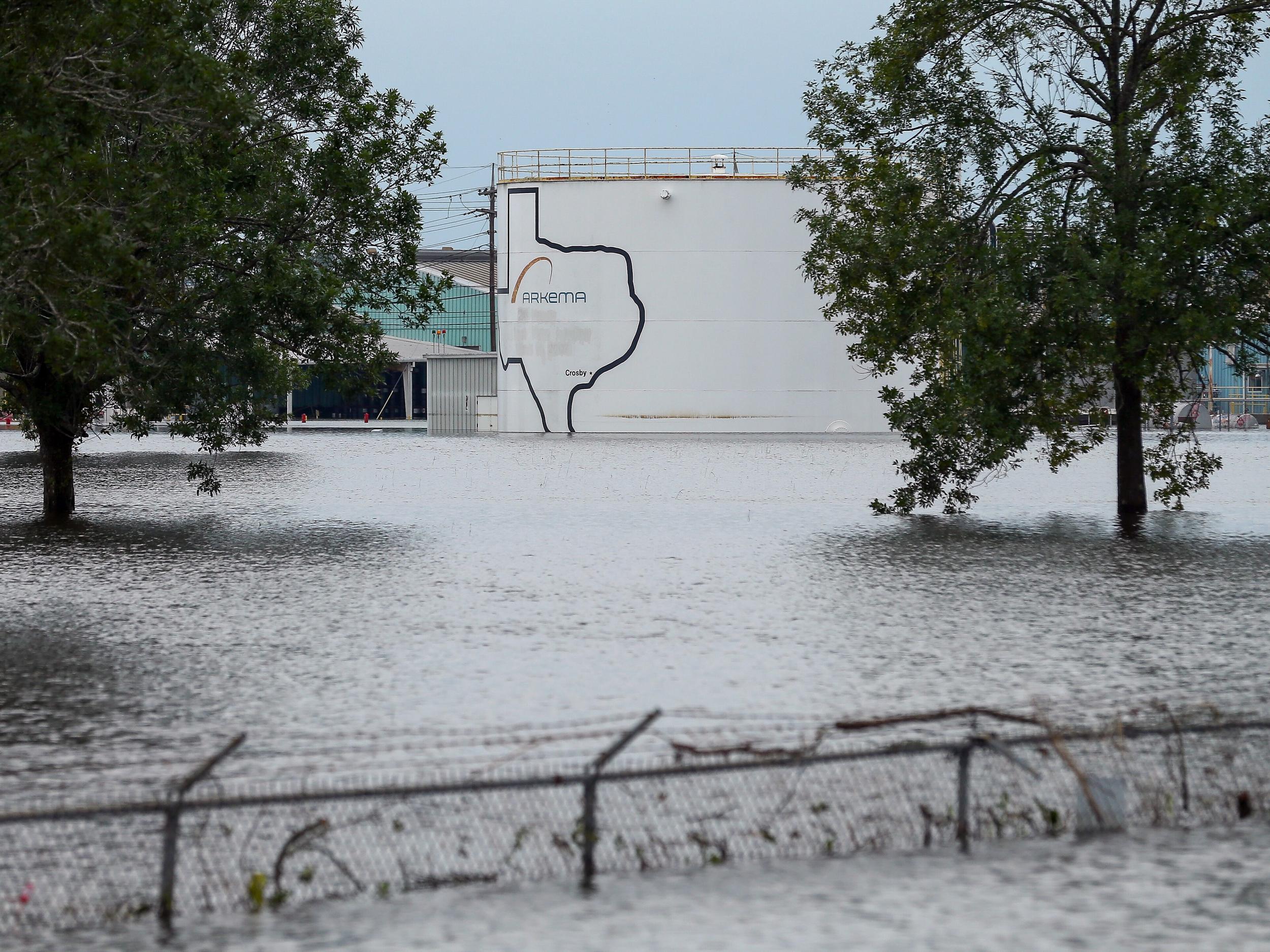Hurricane Harvey: Texas chemical plant 'poised to explode' after flooding cuts power
'No way to prevent' volatile liquids stored at Arkema plant in Crosby from blowing up without proper refrigeration, company warns

Your support helps us to tell the story
From reproductive rights to climate change to Big Tech, The Independent is on the ground when the story is developing. Whether it's investigating the financials of Elon Musk's pro-Trump PAC or producing our latest documentary, 'The A Word', which shines a light on the American women fighting for reproductive rights, we know how important it is to parse out the facts from the messaging.
At such a critical moment in US history, we need reporters on the ground. Your donation allows us to keep sending journalists to speak to both sides of the story.
The Independent is trusted by Americans across the entire political spectrum. And unlike many other quality news outlets, we choose not to lock Americans out of our reporting and analysis with paywalls. We believe quality journalism should be available to everyone, paid for by those who can afford it.
Your support makes all the difference.A flooded chemical plant in a small town outside of Houston was poised to explode, a spokeswoman for the French company that owns the plant said late on Wednesday, though the timing and the extent of the danger weren't immediately clear.
The Arkema plant in Crosby, Texas, about 25 miles (40.23 kilometres) northeast of Houston, lost power and its backup generators amid Hurricane Harvey's days-long deluge, leaving it without refrigeration for chemicals that become volatile as the temperature rises.
“The fire will happen. It will resemble a gasoline fire. It will be explosive and intense in nature,” spokeswoman Janet Smith told the Associated Press.
There was “no way to prevent” the explosion, chief executive Rich Rowe said earlier on Wednesday.
Arkema manufactures organic peroxides, a family of compounds used for making everything from pharmaceuticals to construction materials.
“As the temperature rises, the natural state of these materials will decompose. A white smoke will result, and that will catch fire,” Smith said. “So the fire is imminent. The question is when.”
The company shut down the Crosby site before Harvey made landfall last week, but a crew of 11 had stayed behind. That group was removed and residents within 1.5 miles (2.4 kilometres) were told to evacuate on Tuesday after the plant lost power.
Harris County Fire Marshal spokeswoman Rachel Moreno said the 1.5-mile radius was developed in consultation with the US Department of Homeland Security and other subject-matter experts. “It's a concerning situation, yes,” Moreno said. “But the facility is surrounded by water right now so we don't anticipate the fire going anywhere.”
The plant falls along a stretch near Houston that features one of the largest concentrations of refineries, pipelines and chemical plants in the country.
Arkema's plant is required to develop and submit a risk management plan to the US Environmental Protection Agency, because it has large amounts of sulphur dioxide, a toxic chemical, and methylpropene, a flammable gas. The plans are supposed to detail the effects of a potential release, evaluate worst-case scenarios and explain a company's response.
In its most recently available submission from 2014, Arkema said potentially 1.1 million residents could be impacted over a distance of 23 miles in a worse case, according to information compiled by a nonprofit group and posted on a website hosted by the Houston Chronicle.
But, Arkema added, it was using “multiple layers of preventative and mitigation measures” at the plant, including steps to reduce the amount of substances released, and that made the worst case “very unlikely.”
Daryl Roberts, the company's vice president of manufacturing, technology and regulatory services in the Americas, did not dispute that worst-case scenario but said that assumed all the controls in place failed and strong winds blew directly toward Houston, the nation's fourth-largest city.
“We have not modelled this exact scenario but we are very comfortable with this 1.5-mile radius,” Roberts told the AP. He added that it mostly resembled less serious scenarios that would affect a half-mile radius and a few dozen people.
Roberts said the vessels containing the organic peroxide are equipped with controls to slow the release of chemicals. Because of the water, he said, the chemicals will quickly vaporize, reducing the size and scope of the fire.
AP
Join our commenting forum
Join thought-provoking conversations, follow other Independent readers and see their replies
Comments